Pork & Spice: The Ultimate Flavor Match Made in Heaven (Or Your Kitchen)
Whether you're slow-roasting a pork shoulder, searing a juicy chop, or curing your own bacon, spices are the unsung heroes that transform plain pork into flavor-packed magic. In this article, we'll dive deep into the world of spices on pork, giving you a flavorful toolbox to elevate your next pig-based project from “meh” to magnificent.
Grab your apron and spice rack—we’re going full hog today!
Table of Contents
- Why Spices Matter for Pork
- Top 10 Spices That Love Pork
- How to Pair Spices Like a Pro
- Regional Spice Rundown: Pork Around the World
- Dry Rubs vs. Marinades: What Works Best?
- Pro Tips for Perfect Pork Seasoning
- Common Spice Mistakes (And How to Avoid Them)
- Conclusion
Why Spices Matter for Pork
Pork is rich, fatty, and deeply savory—making it the perfect canvas for bold, complex flavors. But without the right seasoning, it can fall flat. Enter: spices. They do more than just add taste—they enhance aroma, balance textures, and even help build that coveted crust on grilled or roasted cuts.
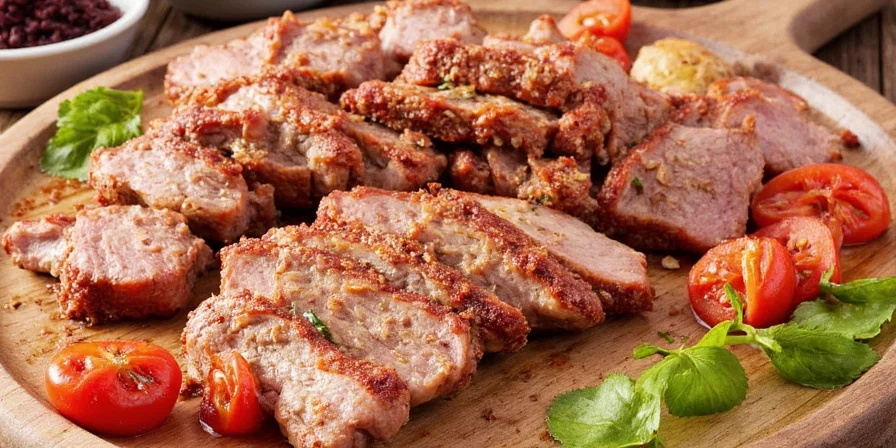
From sweet paprika to fiery cayenne, each spice brings something unique to the party. Let’s break down the best players in the spices on pork game.
Top 10 Spices That Love Pork
| Spice | Flavor Profile | Best Use |
|---|---|---|
| Cumin | Earthy, nutty, warm | Carne asada tacos, carnitas |
| Paprika (sweet/smoked) | Sweet, smoky, slightly peppery | Slow-roasted pork, Hungarian goulash |
| Garlic Powder | Pungent, savory | Breaded cutlets, garlic butter sauces |
| Oregano | Herby, floral, earthy | Mediterranean dishes, Greek souvlaki |
| Fennel Seed | Slightly licorice-like, sweet | Italian sausage, porchetta |
| Cinnamon | Warm, sweet, aromatic | Moroccan tagines, spiced stews |
| Cloves | Intense, medicinal, spicy-sweet | Glazed ham, mulled marinades |
| Chili Powder | Spicy, earthy, tomato-forward | Tacos al pastor, chili pork |
| Coriander | Citrusy, woody, warm | Indian curries, Middle Eastern kebabs |
| Black Pepper | Peppery, sharp, earthy | All-purpose seasoning, steaks, roasts |
How to Pair Spices Like a Pro
Mastering the art of spice pairing is like learning how to DJ—you need to know which beats work well together. Here's a cheat sheet:
- Sweet + Heat: Cinnamon + cayenne = Moroccan magic.
- Smoky + Earthy: Smoked paprika + cumin = BBQ bliss.
- Herby + Citrusy: Oregano + coriander = Mediterranean marvels.
- Savory + Sweet: Garlic powder + brown sugar = classic rub territory.
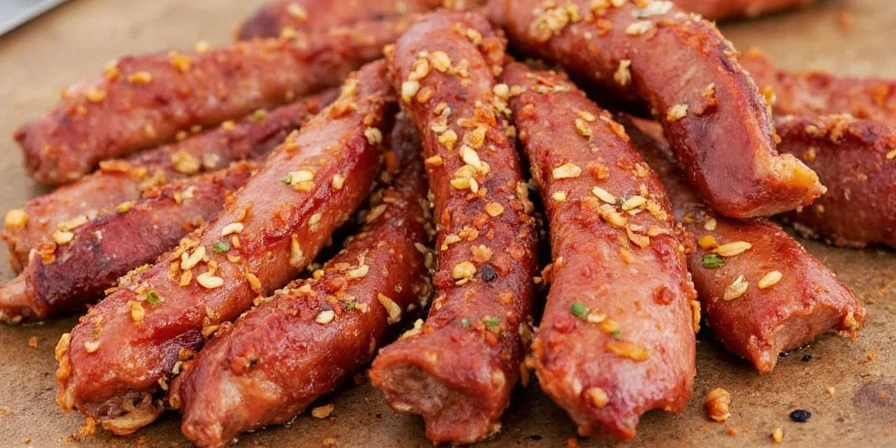
Regional Spice Rundown: Pork Around the World
Let’s take a quick global tour of how cultures season their favorite pork dishes.
Asia
- China: Five-spice powder (star anise, cloves, Sichuan pepper, fennel, cinnamon) is a staple in char siu and red-cooked pork.
- Thailand: Curry pastes featuring lemongrass, galangal, and kaffir lime leaves bring heat and brightness to stir-fries and curries.
- Korea: Gochujang (fermented chili paste) and gochugaru (Korean chili flakes) turn up the umami and spice in bulgogi and pork belly dishes.
Middle East
- Lebanon/Jordan: Baharat (a warm blend including black pepper, cinnamon, allspice, and nutmeg) is used in stews and meatballs.
- Turkey: Sumac adds zing to grilled meats, while allspice brings depth to kebabs.
Europe
- Hungary: Paprika reigns supreme in goulash and slow-roasted dishes.
- Italy: Fennel seeds are king in sausages and porchetta, often paired with garlic and rosemary.
The Americas
- Mexico: Adobo seasoning with chili powder, oregano, and garlic elevates tacos and barbacoa.
- United States (Southern): Classic BBQ rubs include paprika, brown sugar, mustard powder, and cayenne.
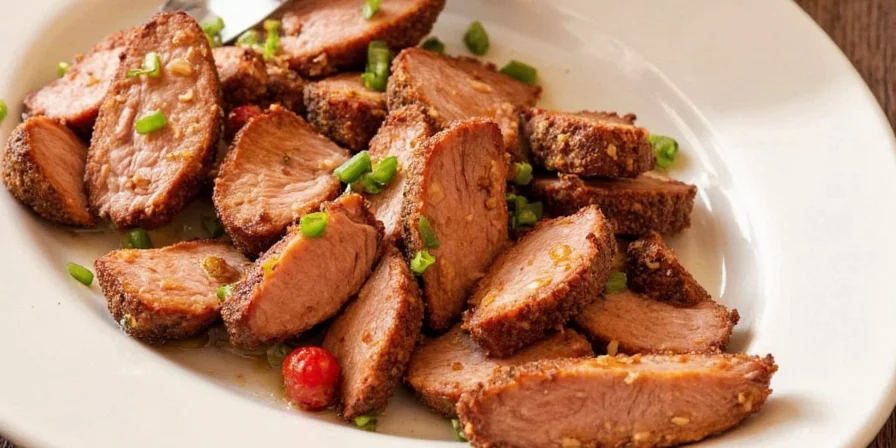
Dry Rubs vs. Marinades: What Works Best?
You’ve got options when it comes to getting flavor into your pork—but what’s the difference, and when should you use each?
| Method | Pros | Cons | Best For |
|---|---|---|---|
| Dry Rub | Quick, builds great crust, enhances texture | Flavor stays mainly on surface | Grilling, roasting, BBQ |
| Marinade | Penetrates deeper, tenderizes with acids/enzymes | Takes longer, can make surface soggy | Stir-fries, kebabs, thin cuts |
Pro Tips for Perfect Pork Seasoning
Ready to level up? These expert tricks will make your next pork dish unforgettable:
- Season early: Salt pork at least 30 minutes before cooking—or better yet, overnight. This helps draw out moisture and intensifies flavor.
- Toast your spices: Lightly dry-toasting whole spices before grinding them unlocks deeper, more complex flavors.
- Balance sweetness: If using brown sugar or honey, always add salt and acid (like citrus or vinegar) to avoid cloying flavors.
- Layer your flavors: Apply a base layer of salt/pepper, then add a second layer of spice mix. Finish with fresh herbs or a glaze during the last few minutes of cooking.
- Rest it right: After cooking, let your pork rest for 5–10 minutes. This allows juices to redistribute—and carries the flavor through every bite.
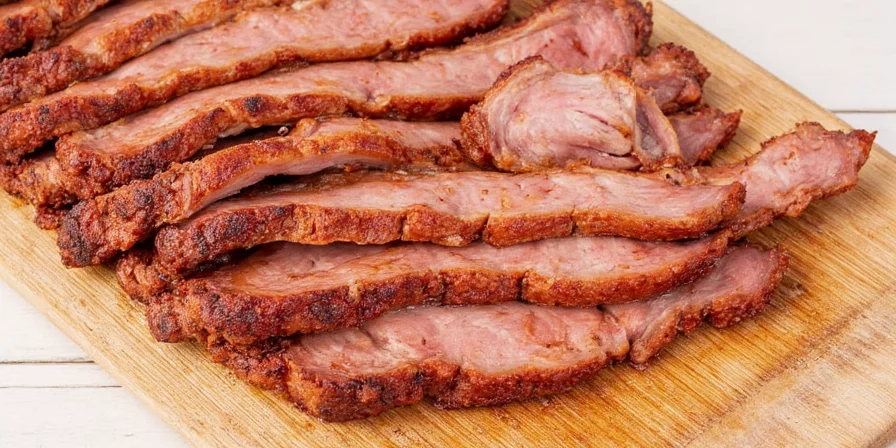
Common Spice Mistakes (And How to Avoid Them)
Even seasoned cooks slip up sometimes. Don’t let these common errors ruin your meal:
- Too much salt: Remember, you can always add more, but you can’t take it away. Start light and adjust later.
- Overloading one note: If everything tastes like cumin or paprika, you've gone too far. Keep a balanced flavor profile.
- Using old spices: Dull, stale spices won’t do your pork any favors. Replace ground spices every 6 months and whole spices annually.
- No fat equals no flavor: Many spices are fat-soluble, meaning they bind to fat. So don’t trim all the fat off your pork—it helps carry the flavor.
- Forgetting about time: Some spices need time to bloom. Let your seasoned pork sit before cooking so flavors meld properly.
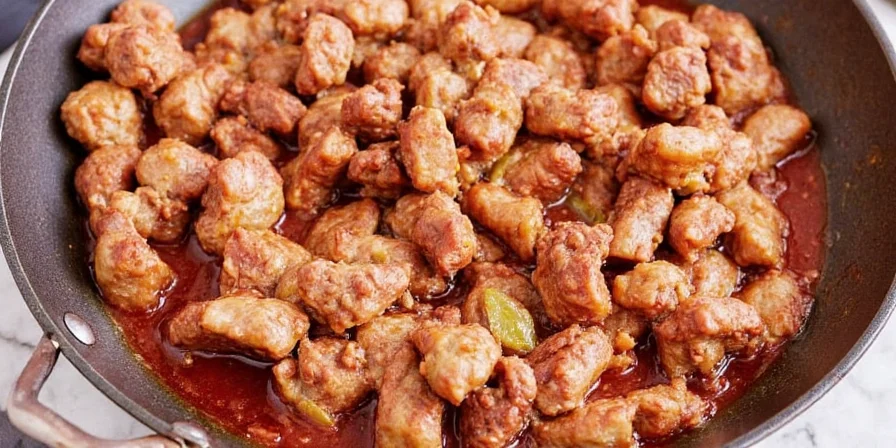
Conclusion
Spices on pork are more than just a sprinkle of heat or color—they’re the soul of a dish. Whether you're smoking a Boston butt, braising ribs, or searing a quick dinner, understanding how to choose and combine spices can take your meals from basic to brilliant.
Now that you’ve got the tools, go forth and spice boldly! Your pork—and your taste buds—will thank you.
Happy cooking!

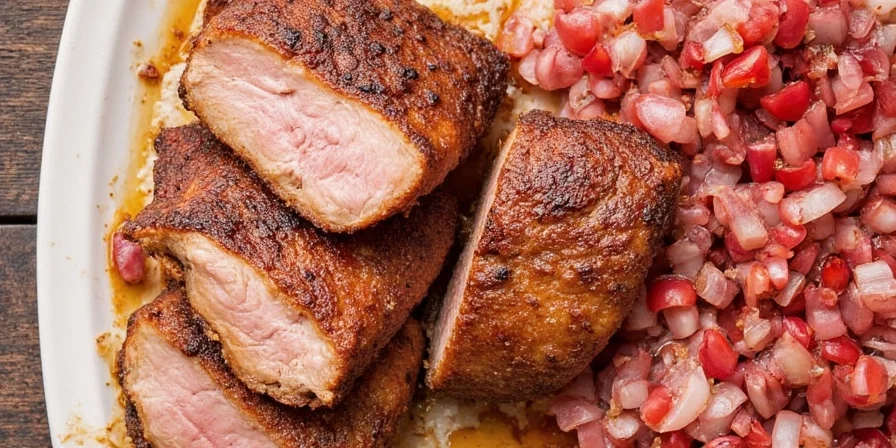









 浙公网安备
33010002000092号
浙公网安备
33010002000092号 浙B2-20120091-4
浙B2-20120091-4